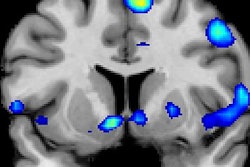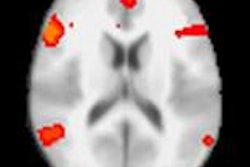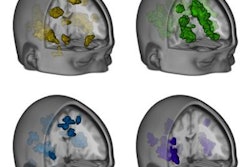
Functional MRI (fMRI) results indicate that a single oral dose of methylene blue can enhance response in brain areas that control short-term memory and attention, according to a paper published online June 27 in Radiology.
Methylene blue is used to treat a blood disorder known as methemoglobinemia, which prohibits oxygen from being released into body tissues.
In the study from the University of Texas Health Science Center at San Antonio, subjects underwent fMRI before and one hour after receiving low-dose methylene blue or a placebo to evaluate the effects of methylene blue on cerebrovascular reactivity during tasks (Radiology, June 27, 2016).
The fMR images showed an increased response in the bilateral insular cortex, which is associated with emotional responses, during a task that measured reaction time to a visual stimulus.
The heightened response was also evident during short-term memory tasks in the prefrontal cortex, which controls memory processing; the parietal lobe, which is associated with sensory information; and the occipital cortex, the visual processing center of the brain.
Methylene blue was also associated with a 7% gain in correct responses during memory retrieval.
The findings suggest that methylene blue can regulate certain brain networks related to sustained attention and short-term memory after a single, low oral dose, concluded lead author Timothy Duong, PhD, and colleagues.




















